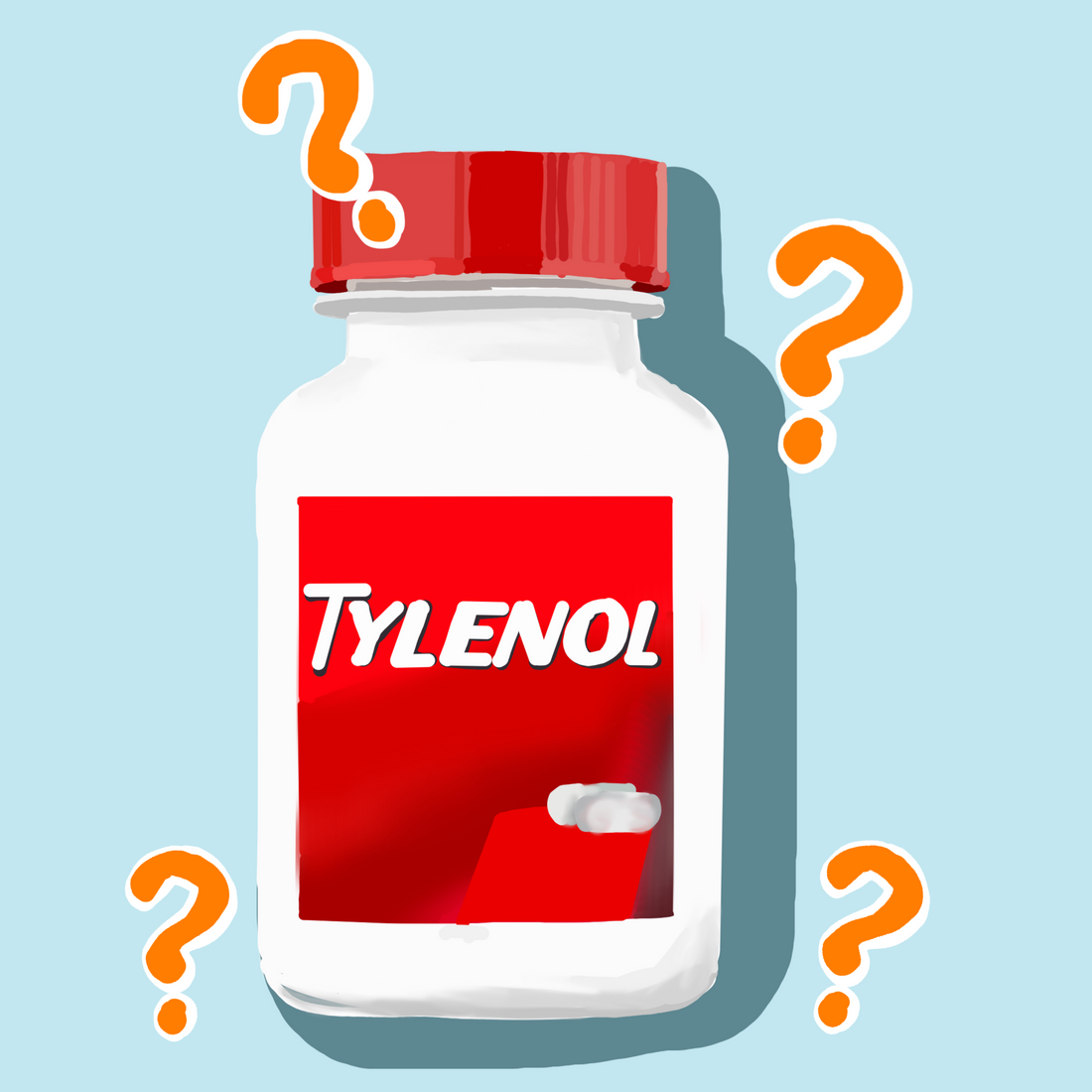Tylenol: Fever Fixer or Cause of Autism?
While Trump’s comments have reignited public fears, researchers stress that the evidence linking Tylenol and autism remains uncertain.
Reading Time: 3 minutes

In recent weeks, President Donald Trump has once again made national health headlines, reviving questions about the causes of autism. One of his claims is that Tylenol, one of the world’s most widely used pain relievers, is to blame. Trump’s comments reflect a growing public concern that something as ordinary as Tylenol, used by roughly half of all pregnant women worldwide, could contribute to the rise in autism diagnoses. Several studies have hinted at a connection between prenatal use of the drug and autism in children, and while the headlines are striking, the scientific evidence is still uncertain.
Used to treat fever and migraines, Tylenol is found in almost every American’s medicine cabinet. It is an over-the-counter drug sold under various brand names, and scientifically, it is known as acetaminophen, or paracetamol outside of the US. Acetaminophen works by blocking enzymes called cyclooxygenase (COX) in the brain and spinal cord, which help produce prostaglandins. Prostaglandins are chemicals that increase pain and raise body temperature, and thus, by reducing prostaglandin levels, acetaminophen reduces pain and lowers fever.
Some large studies have found that children exposed to acetaminophen in the womb were more likely to be diagnosed with autism spectrum disorder (ASD). It is unclear how or if this occurs, but researchers have proposed various ways this might happen. One hypothesis is that once acetaminophen is broken down in the liver, it creates a byproduct known as N-acetyl-p-benzoquinone imine (NAPQI), a toxic metabolite. Metabolites are substances that are intermediate or end products of metabolism, the process by which organisms break down food to create energy. NAPQI is highly reactive and can cause oxidative stress if levels get too high. In theory, this stress could disrupt normal brain development in the fetus, potentially altering how nerve cells grow and communicate.
While acetaminophen has drawn recent attention, researchers have also investigated numerous other potential contributors to autism. Genetic mutations affecting synaptic development, or the process by which neurons form connections with each other, prenatal exposure to infections or environmental toxins, maternal immune activation, and complications such as low birth weight or premature birth have all been studied as possible risk factors. Most scientists now believe autism arises from a complex interplay between genetic predispositions and environmental influences rather than a single cause.
Another hypothesis is that acetaminophen could interfere with hormones and signaling pathways in the brain, including the endocannabinoid system, a network involved in neural development.
A study published in August 2025 by the Harvard School of Public Health analyzed results from 46 previous studies worldwide, concluding that there is evidence of a definitive association between prenatal acetaminophen use and neurodevelopmental disorders.
For parents already worried about rising autism rates, these findings seem alarming. The idea that a drug as common as Tylenol could play a role in autism naturally spreads quickly online and in the media.
Still, experts urge caution. Mental health research often struggles with reliability. Many studies in psychiatry and psychology fail to replicate results when repeated. That means a single study, or even several, cannot provide definitive information about a mental health condition.
Another problem is that these studies usually rely on surveys, where mothers are asked to remember whether and how often they took Tylenol during pregnancy. This introduces recall bias, a distortion of findings due to inaccuracies in remembering and uncertainty.
It is also important to remember that correlation does not equal causation. Pregnant people often take Tylenol for fevers, infections, or pain. Those underlying conditions themselves might affect fetal neurodevelopment, making it hard to separate cause from effect.
Finally, the increase in autism diagnoses over the past few decades does not necessarily reflect a true rise in cases. Awareness has increased, and doctors now use broader criteria and screen more carefully, so many children who might have gone undiagnosed in the past are now included in cases.
For now, medical experts continue to view acetaminophen as one of the safest pain relievers during pregnancy, especially compared with alternatives like ibuprofen, which carry clearer risks. Untreated high fevers and severe pain can themselves harm a pregnancy, so avoiding Tylenol entirely could also pose dangers.
Whether Tylenol truly plays a role in autism remains uncertain. Some studies raise concerns, but the evidence is limited and often questioned. There are strong reasons for worry, but also skepticism. As science works toward clearer answers, the best advice is simple: don’t rely on headlines; rely on medical guidance.
